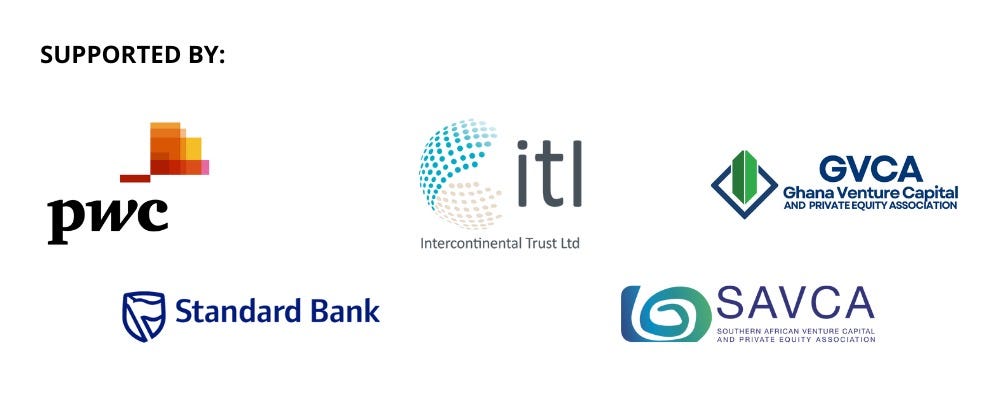Private equity in Africa – positive signs for the future
British International Investment outlines its approach to backing African private equity funds.
** For the best experience, download the free Africa Private Equity News app Android | iOS **
By Andrew Brown, chief investment officer, equity and funds, British International Investment
BII joined hundreds of fund managers and investors at SuperReturn Africa in Cape Town recently. Most were feeling pretty bruised after the recent tumultuous years on the continent. As one of the largest LPs in Africa, BII has certainly shared that pain. But with inflation moderating, currencies stabilising, and an expectation of accelerating growth, we hold a positive outlook of the market. Not every country has turned a corner, but many hopefully have the worst behind them.
Our approach to the African private equity funds market has evolved, however. Our refreshed funds strategy – set out in a new report Investing for Impact in African Private Equity Funds – draws from what we have learned and sets out what we are now looking for as an impact led funds investor. We believe that the market would benefit from a period of consolidation, where growth tilts towards new funds from the most successful established fund managers. The African private equity industry has come a long way in the last 20 years and we no longer see increasing the number of fund managers on the continent as an objective in its own right. As a result, we are looking for the best fund managers whose investment strategies overlap with our impact priorities. We will back first-time teams where we cannot find a suitable existing manager in market segments where we see unmet needs. We are also increasingly looking for co-investment opportunities, where we can select investments that meet our impact objectives while making ourselves a more valuable strategic partner to GPs.
Our primary focus under the new strategy is backing what we refer to as “impact aligned funds”. These are the funds that are most strongly aligned with our development impact objectives – with clear impact intentionality and strong impact performance – but that also have a compelling risk-return profile. However, we also still see the broader lack of patient, risk bearing capital as a fundamental challenge to African development. This is especially damaging for mid-sized and larger firms that cannot reach their potential as the engines of economic growth. We will therefore continue to support a limited number of what we call “strategic funds” which, while not as explicitly oriented towards impact, can help us reach impactful sectors, such as manufacturing and agribusiness. They also offer the risk-return profile needed to attract private capital to the continent and can generate co-investment opportunities.
Our third and final category consists of “catalyst funds”. BII’s catalyst portfolio allows us to apply a flexible risk appetite in pursuit of pioneering impact where investments would not meet the risk/return profile we require in our core portfolio. Catalyst funds are fundamental to our strategic impact objectives, such as inclusion and climate, because they give us the ability to engage with GPs operating in more challenging but impactful segments, such as smaller companies in lower income countries and primary agriculture.
Our new strategy is, in part, a response to the recent challenges faced by Africa-focused GPs. In the last decade, African currencies have almost universally depreciated against the US dollar, meaning even successful GPs have struggled to deliver attractive dollar returns to LPs. Exit challenges have contributed to reduced valuations and longer holding periods, and small fund sizes make it harder to achieve net returns. Some of these difficulties are intrinsic to private markets that are still at a relatively early stage of development, and market dynamics should improve as the market matures. It is our hope that the African PE industry will follow the trajectory of other developing regions, such as Asia, whereby we see market dynamics stop working against fund managers and start working for them.
Our report also sets out the development impact case for African PE. The contribution of PE funds to sustainable development and poverty reduction might seem self-evident to those in the industry, but it is not at all obvious to the wider “development community” where PE can seem like anathema, and the opposite of what money from foreign aid budgets should be spent on.
The impact case for funds is also often undermined by well publicised cases from advanced economies where PE funds have made money at the expense of social costs. We need to be able to make a clear development case for our fund investments, not just to sceptics, but to our shareholder and the British taxpayer.
We see the case for PE funds as resting on the need for patient and risk-bearing capital that is better suited for financing the growth of firms. The case for using funds rather than only investing such capital directly is that the ability to share costs with other investors and diversify risk enables us to allocate more capital overall, and also reach smaller firms than we are able to invest in directly. The injection of growth capital typically provides a stronger impact story than secondary capital (buyouts). While GPs can acquire businesses and help them grow without fresh capital, we want to see a pathway as to how such transactions will deliver impact. Our fund managers’ investment strategies are about driving business growth, which is also what impact delivers impact. US-style LBOs, where returns are premised on leverage and cost-cutting, is not something DFIs would support.
Since the emergence of PE in Africa, BII has been a strong believer in its ability to transform the lives of African people. We will continue to work to help build an ecosystem of sustainable fund managers who can attract foreign and domestic capital, and invest it responsibly in the African economy.
Stay ahead in Africa's private equity and venture capital sector with Africa Private Equity News’ monthly Dealmaker’s Log – a database of reported investment deals, exits, and fundraising closes. Subscribe here



